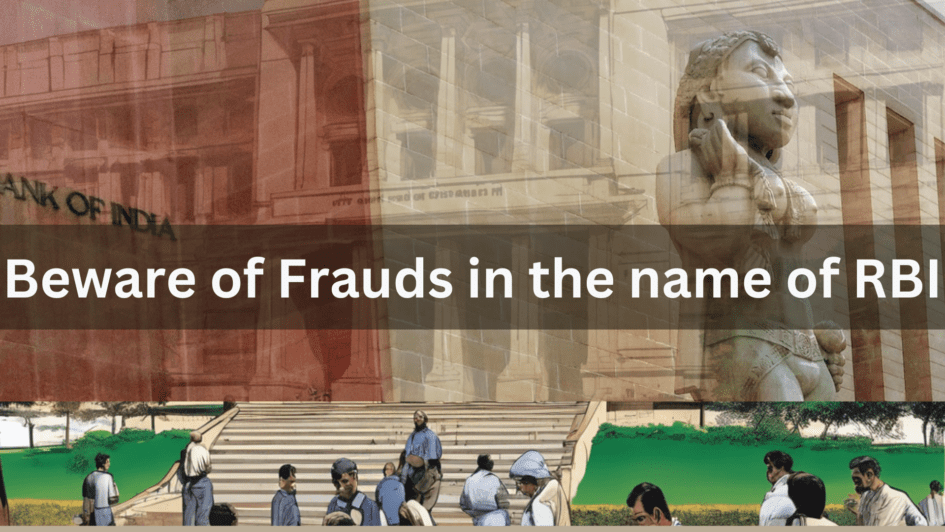The Reserve Bank of India issued a notification on August 29, 2024, warning that deceitful individuals are exploiting the RBI’s name to swindle the public. The RBI has noticed an alarming pattern of fraudsters employing both alluring and coercive strategies to trick people and businesses. In the digital era, it’s vital to comprehend these methods and protect oneself from such deceptions.
Fraudulent Schemes-tactics
Enticing Tactics: The Lure of Unrealistic Offers
Scammers often use fake letterheads and email addresses to pretend they are RBI officials. They claim you’ve won a lottery, can get a fund transfer, or benefit from government schemes. They then ask for fees like “currency processing fees,” “transfer charges,” or “security deposits” for fake contracts.
These fraudsters also target small and medium-sized businesses, pretending to be RBI or government officials. They promise lucrative government contracts in exchange for “security deposits.” While the promise of high returns is tempting, it often ends in disappointment. The Reserve Bank of India (RBI) advises everyone to be cautious and skeptical to avoid falling for these scams.
Intimidating Tactics: The Threat of Consequences
Fraudsters also use intimidation tactics. They send unexpected calls, SMS messages, and emails pretending to be RBI officials, threatening to freeze or deactivate bank accounts. They create a false sense of urgency, making people share sensitive information like personal details, account login credentials, and card information, or use unverified apps linked in the messages.
A worrying trend is that these scammers pose as government officials, making victims believe they are involved in serious legal or criminal issues. They accuse victims of sending or receiving illegal goods or being part of suspicious banking transactions, causing fear and hasty reactions.
Beware of False Accreditations
The RBI has also noted the rise of unauthorized websites and applications that falsely claim to be registered with the Bank. These entities pretend to offer legitimate financial services or digital lending applications. Public trusts them unwittingly. Fake accreditations make it harder to identify real threats. It’s important to always check if organizations claiming to be regulated by the RBI are genuine.
What the RBI Wants You to Know
To help navigate this treacherous landscape, the RBI has issued several key warnings:
- RBI does not maintain accounts for individuals, companies, or trusts, nor does it ask for deposits.
- No Lottery Notifications: The RBI does not send emails, SMS, or letters concerning fictitious lottery winnings or international funds.
- Stay Suspicious: Be wary of communications from anyone claiming to be an RBI or government official, especially those requesting money or sensitive information.
- Protect Personal Information: Never share account information, personal details, KYC documents, passwords, or OTPs with unverified parties.
- Check Supported Entities: A list of all entities regulated by the RBI is available on their website (https://rbi.org.in/). Always verify the legitimacy of organizations before engaging with them.
- Report Scams: If you encounter suspicious communications, it is advisable to report such incidents to local law enforcement authorities promptly.
With the rise in consumer awareness, it’s increasingly important to be alert to potential scams, especially those that mimic the RBI.
Staying informed and cautious is key to safeguarding oneself from the crafty scammers. Always remember that when something seems questionable, one should always seek confirmation through official sources. Safeguarding your financial assets and personal information is paramount, and your attentiveness is the most effective shield.
Members/public are advised not to respond to communication from such people/entities and to report such incidents to law enforcement agencies.

Leave a Reply
You must be logged in to post a comment.